Hellraiser: Impact of a Legend
The Genius of the 'Hellraiser' series.
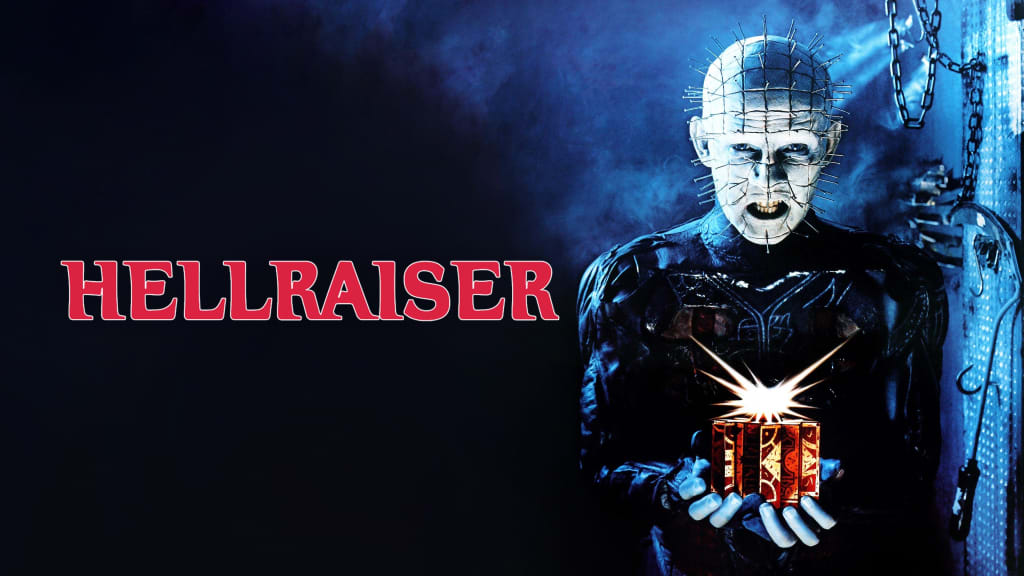
”We have such sights to show you…”
These words were spoken at the end of a film that became the beginning of a legacy. I’ll never forget the first time I laid eyes on the horror icon known as Pinhead. I went over my dad’s house for the weekend one day in 1997 and he rented this horror movie about this beautiful woman who was helping a pale skinned man with needles in his head terrorize some family for reasons I was too young to understand, but the movie was very entertaining. The name of that movie was Hellraiser: Bloodline and it was the fourth film in the Hellraiser film series created by Clive Barker. Hellraiser is without a doubt, one of the greatest cinematic masterpieces of horror film history, especially when it comes to slashers. The key to understanding the genius and impact of the Hellraiser series is examining its concepts, themes, characters and real life messages about morality and the consequences of our choices.
Hellraiser, which was based on the novel “The Hellbound Heart” by Clive Barker, was released on September 18th 1987, written and directed by Barker himself. The film is centered around a man by the name of Frank Cotton and how his hedonistic ways land him in an eternity of suffering after he opens a mysterious puzzle box known as the Lament Configuration, a gateway to unspeakable pleasures and pain from hell for the price of the soul of the person who opens the box. The box is the doorway to a private area of Hell known as the Labyrinth, ruled by a demonic king known as Leviathan and his minions who do his bidding, known as the Cenobites. The leader of the Cenobites goes by the name Pinhead and he would of course become the face of what the Hellraiser brand represents.
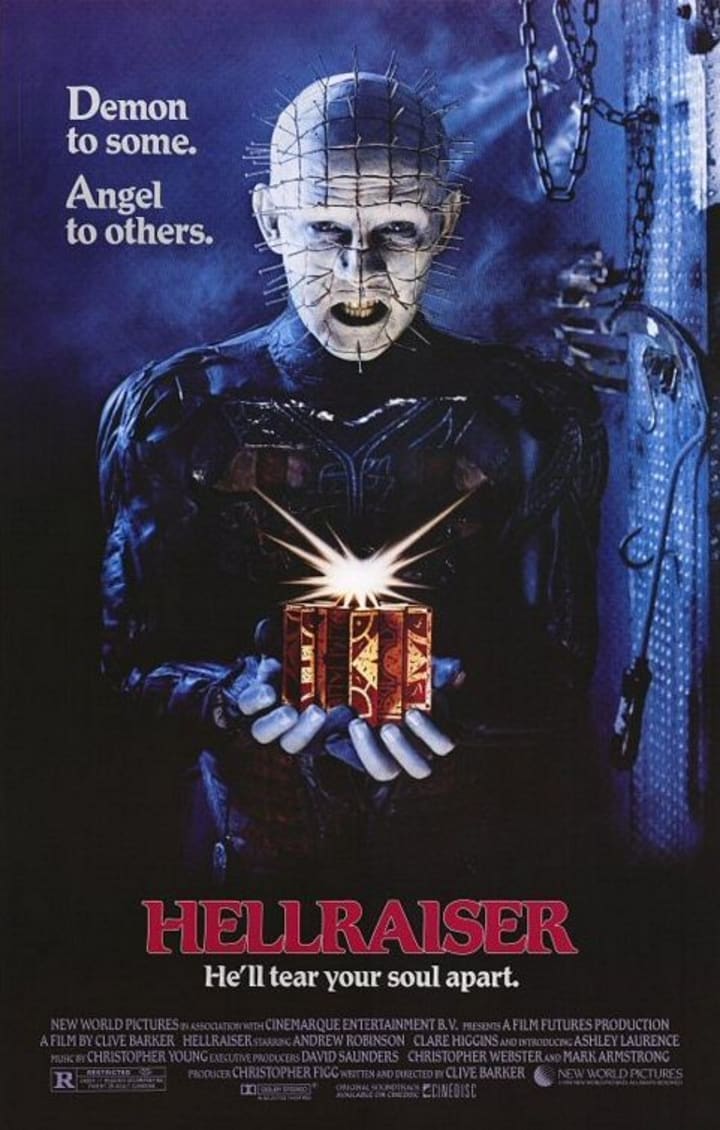
From the very beginning Hellraiser captivated audiences with its horrific take on taboo sexual subject matter. The film begins with the image of four demonic figures dressed in S&M clad attire. The choices of the main characters of the series are what summons these demons to cause terror. Countless films throughout cinema history have touched base on the concepts of good and evil or Heaven and hell, but Hellraiser did it in a way that was different from most films. In Hellraiser hell and it’s inhabitants are not just forces of malice motivated by a bloodlust to terrorize the innocent, but a consequence brought into existence by the poor choices of the people we view as innocent. Unlike other horror icons like Michael Myers, Jason Voorhees and Freddy Krueger, Pinhead and the Cenobites can only inflict harm when they are summoned by those who open the Lament Configuration. With a protocol such as this, one has to wonder who really is the protagonist and antagonist of the story when the villains can clearly only be as villainous as you choose to make them.
Every horror fan waits for death to find the characters they are watching like a kid in a candy story. An interesting twist to Hellraiser is the most anticipated fate for its characters is not death, but suffering. What’s makes Pinhead and the Cenobites so frightening is not how they kill victims, but how they intend to torture their victims with unspeakable methods and how they plan to make that pain last forever. Several times through out the series Pinhead offers death as a preferred alternative rather than making them suffer, or giving them the chance to live.
Perhaps the biggest unsung quality about Hellraiser is the depravity of its central characters. Hedonism is of course the main theme of the story. The characters are always living for the pleasures of the flesh, completely unaware and uncaring of the eternal consequences they will face for their actions. Characters like Frank Cotton in the original film and characters who appear later in the series like JP Monroe from Hellraiser 3: Hell on Earth and Joseph Thorn from Hellraiser 5: Inferno are all individuals who lived for the temporary satisfaction of their flesh in ways that caused them to hurt the people around them and their selves more than anything else and an eternity of self manufactured hell ended up being the end result of their actions. The tragic side to this is most of these characters were good people with good hearts but let the vain ways of the flesh get the best of them and destroyed the innocence of their spirits. I can honestly say the exploration of these themes throughout the series really scared me when I was younger because they made me self reflect, take a look at my own morals and ask “am I a vain individual who lives only for my fleshly gratification in a way that’s gonna cause me an eternity of suffering?
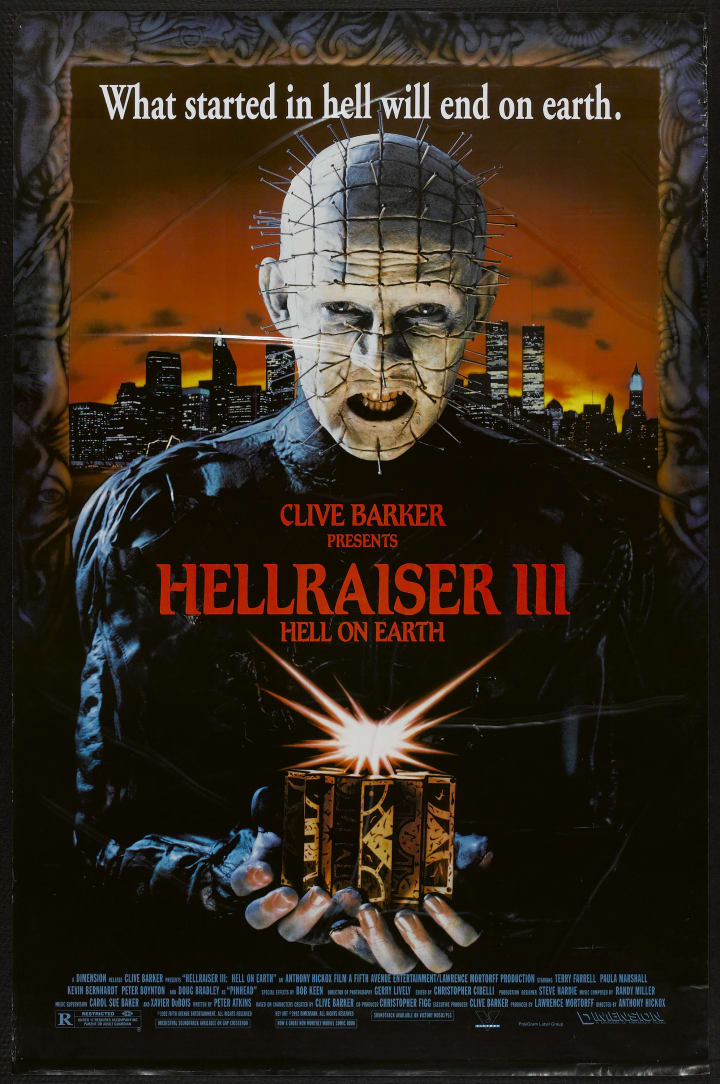
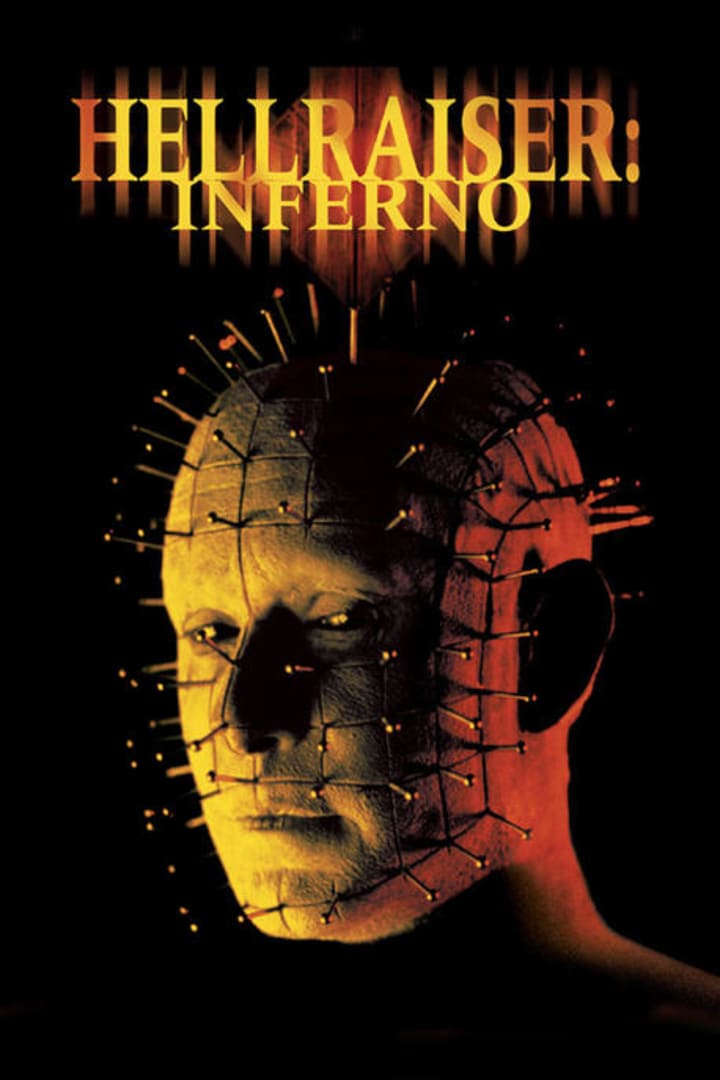
How does one describe the infamous Pinhead? One of his nicknames is the “Black Pope of Hell”, another nickname is “Leviathan’s Lord of the Damned”, but my personal favorite is the “Angel of Suffering”. Portrayed by actor Doug Bradley in such a captivating performance, Pinhead was very different from most other horror icons. He was not silent like Michael Myers, Jason Voorhees, or Leatherface, but he also was not the talkative wise cracker like Freddy Krueger, Chucky, or Pennywise the Clown. Pinhead was very well spoken, articulate and had a calm demeanor, much like the Candyman who would be introduced years later and was also created by Cliver Barker. Part of what makes Pinhead so interesting is that he is not really the bad guy, most of the time at least. He is really more of a inter dimensional judge overseeing the fates of those who involve themselves with the Lament Configuration.
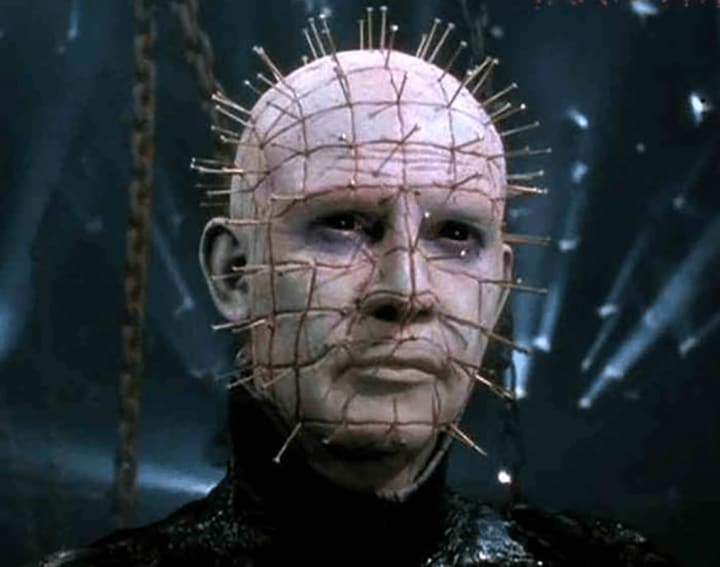
Because Pinhead is half human, the human side of him makes him interestingly fair and even moral at times. Any Hellraiser fan would easily tell you that one of the series’ greatest moments was in Hellbound: Hellraiser 2 when Pinhead became an anti-hero and saved the lives of the main characters. He continued to play this partial role in the third entry in the series as well.
When the original Hellraiser made its debut Stephen King was quoted as saying “I have seen the future of horror, his name is Clive Barker”. I could not agree more and Hellraiser is a prime example of the great future of high quality that was brought to horror by Clive Barker. Hellraiser will forever be not only one of the greatest horror masterpieces ever, but also one of the most worldly conscious horror films as well.
About the Creator
Joe Patterson
Hi I'm Joe Patterson. I am a writer at heart who is a big geek for film, music, and literature, which have all inspired me to be a writer. I rap, write stories both short and long, and I'm also aspiring to be an author and a filmmaker.
Enjoyed the story? Support the Creator.
Subscribe for free to receive all their stories in your feed. You could also pledge your support or give them a one-off tip, letting them know you appreciate their work.


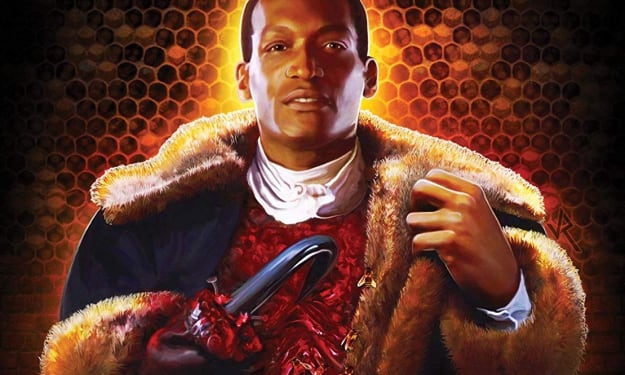



Comments (1)
Fantastic!!! Hearted!!!